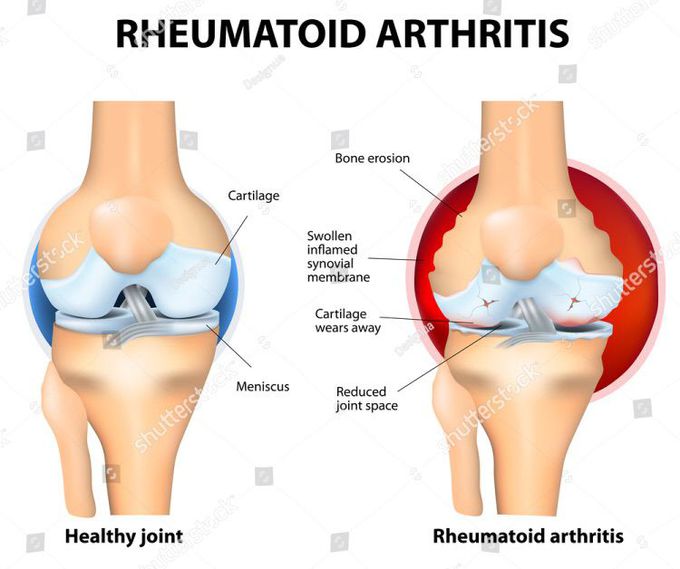

Rheumatoid arthritis
Rheumatoid arthritis is a chronic inflammatory disorder that can affect more than just your joints. In some people, the condition can damage a wide variety of body systems, including the skin, eyes, lungs, heart and blood vessels. An autoimmune disorder, rheumatoid arthritis occurs when your immune system mistakenly attacks your own body's tissues. The inflammation associated with rheumatoid arthritis is what can damage other parts of the body as well. While new types of medications have improved treatment options dramatically, severe rheumatoid arthritis can still cause physical disabilities. Signs and symptoms of rheumatoid arthritis may include: Tender, warm, swollen joints Joint stiffness that is usually worse in the mornings and after inactivity Fatigue, fever and loss of appetite Early rheumatoid arthritis tends to affect your smaller joints first — particularly the joints that attach your fingers to your hands and your toes to your feet. As the disease progresses, symptoms often spread to the wrists, knees, ankles, elbows, hips and shoulders. In most cases, symptoms occur in the same joints on both sides of your body. About 40 percent of the people who have rheumatoid arthritis also experience signs and symptoms that don't involve the joints. Rheumatoid arthritis can affect many nonjoint structures, including: Skin Eyes Lungs Heart Kidneys Salivary glands Nerve tissue Bone marrow Blood vessels. Make an appointment with your doctor if you have persistent discomfort and swelling in your joints. Rheumatoid arthritis occurs when your immune system attacks the synovium — the lining of the membranes that surround your joints. The resulting inflammation thickens the synovium, which can eventually destroy the cartilage and bone within the joint. The tendons and ligaments that hold the joint together weaken and stretch. Gradually, the joint loses its shape and alignment. Factors that may increase your risk of rheumatoid arthritis include: Your sex. Women are more likely than men to develop rheumatoid arthritis. Age. Rheumatoid arthritis can occur at any age, but it most commonly begins in middle age. Family history. If a member of your family has rheumatoid arthritis, you may have an increased risk of the disease. Smoking. Cigarette smoking increases your risk of developing rheumatoid arthritis, particularly if you have a genetic predisposition for developing the disease. Smoking also appears to be associated with greater disease severity. Environmental exposures. Although poorly understood, some exposures such as asbestos or silica may increase the risk of developing rheumatoid arthritis. Emergency workers exposed to dust from the collapse of the World Trade Center are at higher risk of autoimmune diseases such as rheumatoid arthritis. Obesity. People — especially women age 55 and younger — who are overweight or obese appear to be at a somewhat higher risk of developing rheumatoid arthritis.

